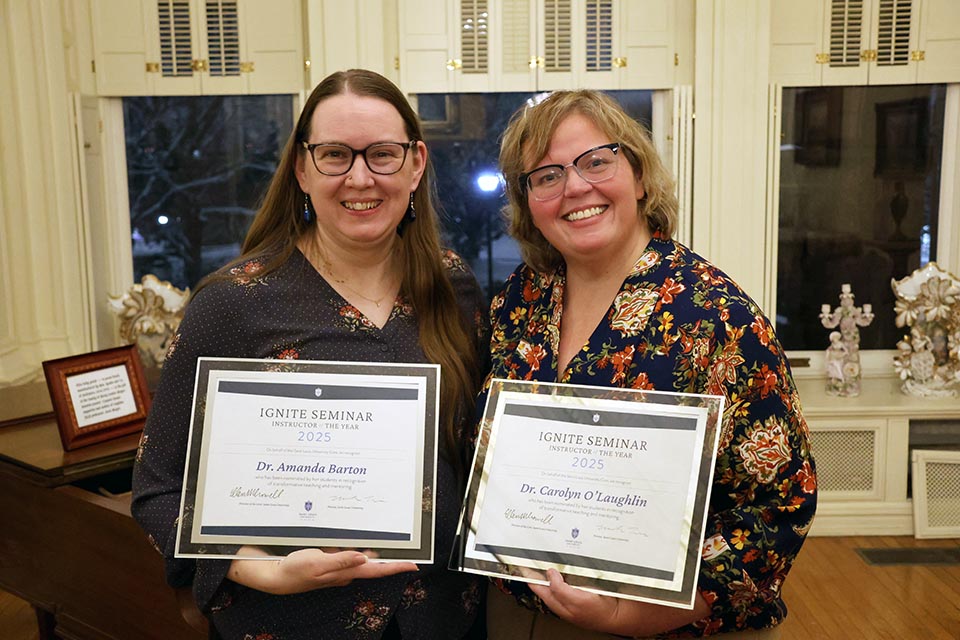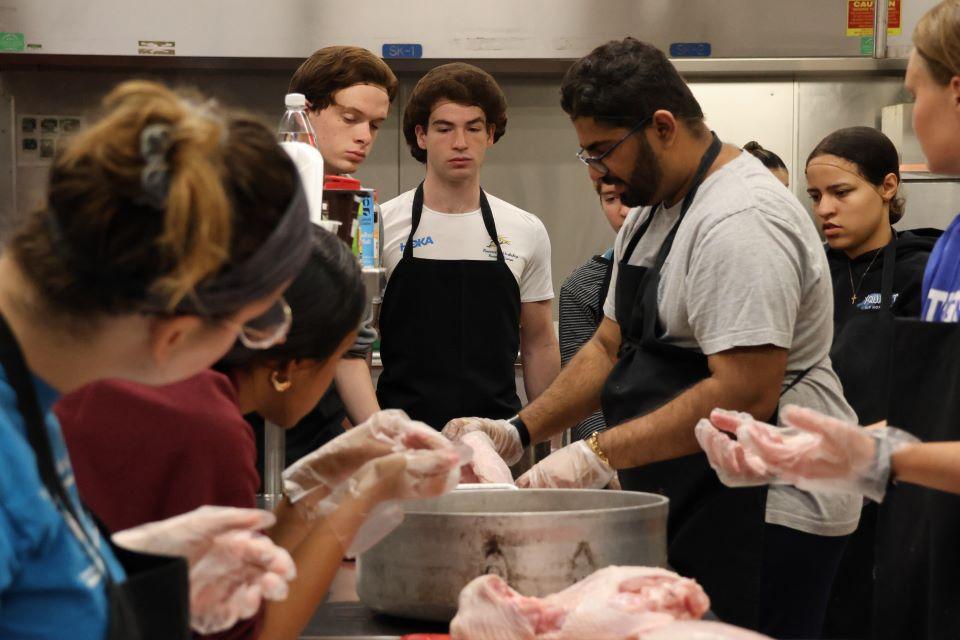Lentine Receives Award of Merit for Outstanding Contributions to Scientific Medicine
Krista Lentine, M.D., Ph.D., professor of medicine at Saint Louis University’s School of Medicine, is the 2024 recipient of the St. Louis Metropolitan Medicine Society Award of Merit for Outstanding Contributions to Scientific Medicine.

Krista Lentine, M.D., Ph.D. Photo by Sarah Conroy.
Lentine is vice chair of internal medicine research, associate division director of nephrology, and medical director of living donation. Lentine is a widely recognized leader in nephrology and transplant medicine, with a career dedicated to improving kidney transplantation outcomes and advancing research in organ donation and recipient care.
“Dr. Lentine’s research and leadership in transplantation have improved patient outcomes and shaped the future of kidney donation and recipient care. Her dedication to advancing scientific medicine in St. Louis and beyond makes her a deserving recipient of this honor,” said SLMMS 2024 President Kirsten Dunn, M.D, in St. Louis Metropolitan Medicine Magazine.
St. Louis Metropolitan Medicine Society (SLMMS) was formed in 1836 and is one of the oldest medical societies in the U.S. The award, first established in 1927, recognizes distinguished and exceptional service to scientific medicine in the greater St. Louis community. Over nearly a century, only 40 individuals have received this prestigious honor.
Lentine was recognized at the group’s annual meeting earlier this year.
Throughout her career Lentine has been instrumental in shaping policies and guidelines for living kidney donation and transplantation, serving on the Organ Procurement and Transplantation Network (OPTN)/United Network for Organ Sharing (UNOS) Living Donor Committee, where she held the role of chair, and as director of the Scientific Registry of Transplant Recipients (SRTR) Living Donor Collective.
Her research is centered on critical patient-centered themes, including understanding disparities in living-donor and transplant-patient outcomes; developing tools for tailored risk prediction; improving access to transplantation and organ use, especially for under-represented persons; and reducing consequences of comorbidities such as cardiovascular disease in transplant patients.
Latest Newslink
- SLU Commits up to $1.5 Million to Support Local Students Pursuing Social Work and Criminal Justice CareersThe new initiative — representing a commitment of up to $1.5 million in scholarship support over the next several years — is designed to strengthen the region’s social work and criminal justice workforce by expanding college access for talented local students.
- University Core Honors Ignite Seminar InstructorsTwo Ignite Seminar instructors have been recognized with the 2025 Ignite Instructor of the Year Award. At a ceremony Tuesday night in Cupples House, Carolyn O'Laughlin, Ph.D. (Education) and Amanda Barton, Ph.D. (RISE Counselor) were honored by the University Core after being nominated by students in their Ignite Seminars.
- Sharing Throughout the Season: Ways to Give Back at SLUThis holiday season, Saint Louis University is highlighting organizations that could benefit from the gift of time or donations, including the University's annual Blue Santa toy drive.
- SLU Wins Collegiate Chess League Back-to-Back SeasonsThe SLU Chess Team won back-to-back Collegiate Chess League titles, securing the Fall 2025 season championship. This win is SLU's fifth Collegiate Chess League title in the last six seasons.
- TurkeyPalooza Food Drive Helps Provide a Thanksgiving Meal to Individuals, Families in NeedTurkeyPalooza, the annual Campus Kitchen food drive and Thanksgiving food prep event, resulted in 200 individual Thanksgiving meals and 40 meal-prep boxes for families in the St. Louis community.
- Saint Louis University's Moore Honored by Missouri Lawyers WeeklySenior Associate General Counsel Christina Moore, J.D., has been recognized by Missouri Lawyers Weekly for her work as in-house counsel at a non-profit or government organization. Moore (Law '02) was honored at the In-House Counsel Awards, an event designed to recognize attorneys from different sectors for their contributions and work.













